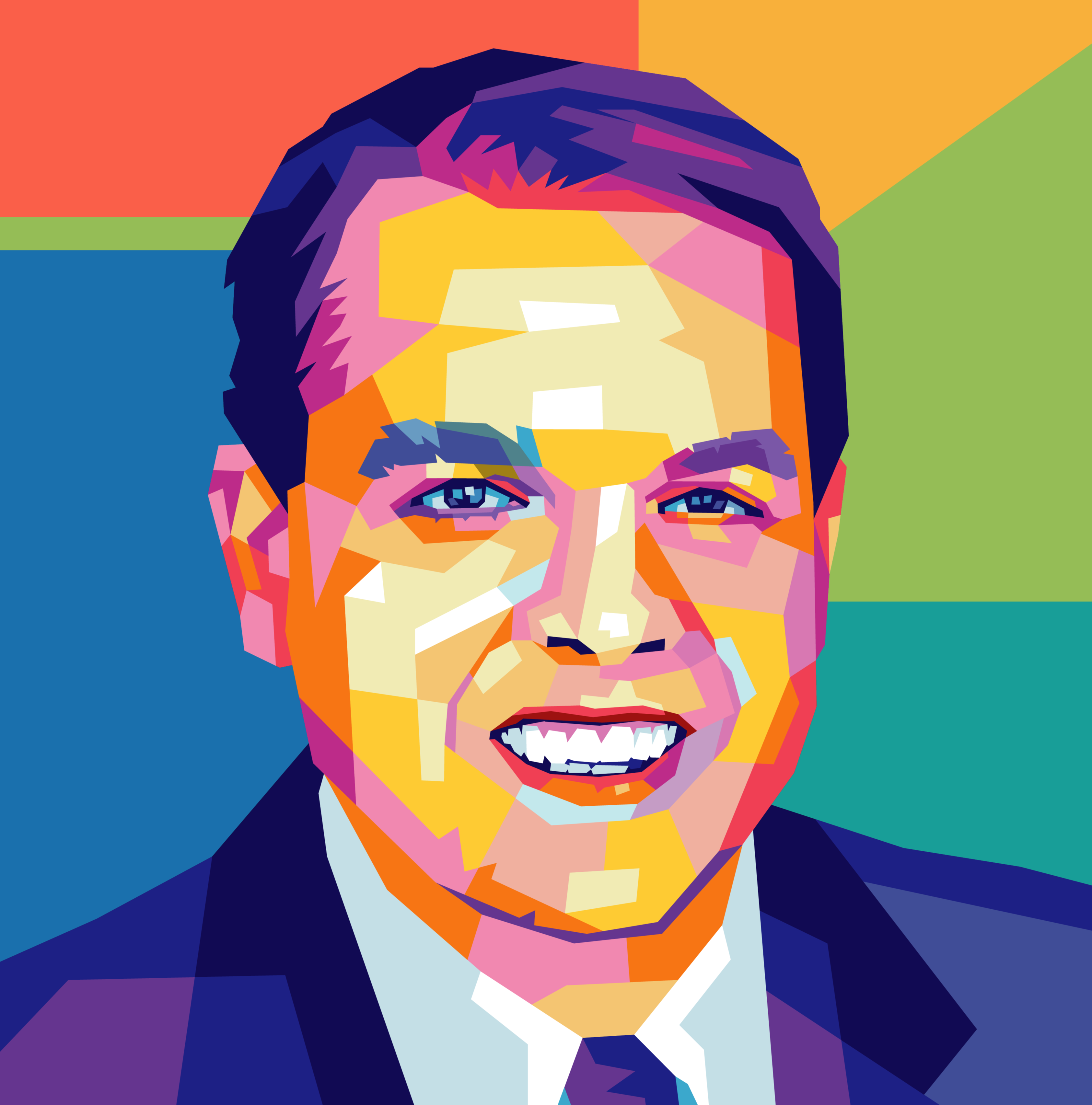The 20th annual T3 conference kicks off today.
I'm looking forward to attending the event to explore the past, present and future of innovation in wealth management. My favorite thing about T3 is talking to various industry leaders and advisors about their successful business practices.
One of the pillars of Action! magazine is operational effectiveness, we seek out wealth management leaders to learn what is working for their firms and tell their stories. We hope this thought leadership provokes valuable actionable insights for your firms and your business practices.
Last year at T3, I caught up with Robert Steinberg, the founder and wealth manager of Blue Chip Partners in Farmington Hills, Michigan. He shared stories about his firm's road to successful growth. Click on the video to watch the interview.

Transcript:
Din: Hello, and welcome. Thank you for joining us again today. I'm about to have a conversation with Robert Steinberg, CEO and founder of Blue Chip Partners out of Michigan. Robert, thank you for joining me again.
Steinberg: Thank you for having me.
Din: We recently featured your firm and a couple of other firms talking about how firms can think about their budgeting and their spending because it's very interesting. Despite sort of what we're seeing in the market, a lot of wealth management firms are actually increasing their spending on marketing and hiring. I really want to get sort of a little more deeper with you how Blue Chip is working in this market and continuing to expand your presence in the market and the number of people working for you.
Steinberg: We basically have undergone a concentrated program to continue to grow the firm. What you're seeing a lot in the industry are firms making the decision to sell to bigger consolidators. We've been approached many times, and we just made a decision, that's not a path we want to go. So, if you're going to stay independent, you need to add COOs, you need to have a director of investments, and you need to build out your portfolio reporting and management team. So we've made a number of hires along those lines with the idea of, we're going to continue to grow. And as we proceeded through there, what we really realized is one of the paths for growth is going to be acquisition of advisors very close to retirement. What we've done is basically built out a second level of financial advisors, not looking to hire people right out of school, but looking to hire people with excellent professional experience. For instance, someone that has a CPA we brought in, we brought in somebody with a master's in finance and somebody else who basically did mortgage-backed security. The idea is trying to build out that second generation, so as we get these senior advisors close to retirement, we can bring these juniors to work with their clients and then gradually transition to them. We're like a baseball team building a bench, you know, building a farm team, but we're only looking to have the “A” player. So you have to make an investment – because to get the real good people and train them costs a little bit more than others. Costco has always been one of the corporations that I admired and they always pay their people a little bit more. But if you go into a Costco, you see those people are there year after year. At Blue Chip we’re at 25 people, and to date, we've only had one person leave and go to a competitor. So we've done a pretty good job of hiring really good people and keeping them – which is the lifeblood of a business. Because if you're trying to train somebody continually, you know, clients don't like it, firms don’t like it.
Din: So if you're going through a cycle of that – then it's like disruption, interruption and then maybe growth not being achieved the way you want it to.
Steinberg: Exactly.
Din: It's interesting, though, your strategy is two-pronged – buying a book of business, but also getting the right person that can pick up that book of business.
Steinberg: Right, exactly. If you're someone that's closer to retirement, typically, we're not targeting the big firms. We'll leave that to the big players. But we're targeting people from maybe 50 million dollar practice to 350-400 million type of a practice. From that standpoint, one of their big concerns – they've grown up with their clients – who will take care of their clients. That's, you know, so important to them. So not only can we say that we will take care of them, but we can actually pick and choose which advisor may work well with the best client, so not just having one advisor step in, but maybe you have some clients that are really liberal that a liberal advisor might be better somebody really conservative, or somebody that has a certain interest, a business owner taxes, however, it really provides the best opportunity to create a good match for the future advisor and the client.
Din: Now, these advisors that are kind of that you're working with to help them transition, these ones that you're hiring, have they had kind of like books of business like this before?
Steinberg: No, so really, what we're doing is that we're focusing on the senior advisors who are closer to retirement and that the second level advisor of who we focused on is just finding talent. We use a kind of employee testing software that has been very, very helpful in helping us identify talent. The idea is once we have talent, then we'll work with the talent to train them to be an advisor. In sports, I'd say you draft the best player available, what we're really targeting to do not as much focused on experience – although we'd love to have experience – but much more character and fit what we want and an advisor for Blue Chip, and long as you do then then we feel like we have the quality and depth of staff to train people.
Din: Is this just gut intuition about this? Is this somebody who's gonna like really do well with this?
Steinberg: Oh, yeah, I mean, I was just at a Blackstone summit this last week and Grant Hill, former Detroit Pistons spoke and he said a line that will stay with me forever, he said, “You can't teach hungry.” Part of interviewing, part of talking to people is – is this someone who has a passion for what they do? Is this somebody who really wants to continue to improve and who takes pride in the service? As the guy who is doing most of the hiring between using this testing service, talking with them individually, having them talk with our entire team. What you're trying to decide is does this person have the skill for the role? And as long as they do have the skills for the role – are they hungry? Is this somebody that really wants to compete and be an “A” player because, you know, we're willing to compensate people to be “A” players – that's where what we are focused on hiring.
Din: This second-level advisor – what's different in their skill set than say the older advisors that you’re transitioning out of their books of business to these younger guys?
Steinberg: That's actually a great question because the world's changed. I mean, before, when you got in this business, you called your friends and family, you kind of built client by client by client. Now, what's happening is there are advisors that are more senior, that are now looking for people to take care of their clients. So the skill of being a business developer, while always rewarded, isn't as essential for providing a high level of technical and relationship-building experience. You're much more looking at someone who can nurture a relationship versus someone who can go find it. Over time, if they're good nurturers, they will get referrals, they will gradually build their network. But in the olden days, I mean, you started out, it was a funnel, and only a few people survived because you had to generate your own book and build your own book. That's not really what's happening now – it's much more about trying to find people who can provide a high level of service to an existing book of business.
Din: Is there some element though, when you're doing that analysis of how well they connect to that younger client? Or maybe that next generation in that book of business? That wasn't as connected to the previous advisor.
Steinberg: We look at it client by client. So for the senior advisor who's looking to transition out maybe one to five years, we're trying to figure out for this individual client, what do they like? What are their interests? What did they do? Then if we have three different choices of somebody that we may be able to put on there, we may have somebody more senior also. Like our CPA, she's got about five years experience since college – she was valedictorian of her high school – so very sharp. We also have another gentleman who got his master's from U of M. We have some really sharp, sharp people. But it's more about trying to figure out who is the right person to work with the individual. We have a senior advisor who's been around for many years, just transitioned from being our Chief Operating and Chief Compliance Officer to being an advisor, and he knows the business cold and has been in the business for many, many years. When you're having these relationships, who do we match the client with that's going to provide the best level of service for them?
Din: Yeah, I'm really interested in understanding that pairing – do you have any advice on how to make that actually work on a one-to-one? If you come from one way of doing business, and you've built up a book of business, now you're gonna hand it off. I’m sure there are questions and doubts. Sort of like this clash of “I did it this way.” Do you have any kind of advice on the kind of things that you guys have learned for how you pair these folks up successfully?
Steinberg: Yeah, so that's another really, really good question. Because what ends up happening is we haven't had a circumstance where someone's doing a transition or leaving tomorrow. Yeah, so usually, it's a gradual type of transition where somebody is taking more and more of a lead role over a couple of years. But it's really getting down into the portfolios and a lot will depend on the individual portfolio, you know, and the kind of revisions that you may be making to the the portfolio. It's really more about just getting the client to see the benefits of multiple advisors, the ones that we have done so far, we're more single, you know, they kind of had their own shingle. And so clients have basically been able to see the benefits of working with a team. The first one we did was 25 million, and I think now we have 69 million in assets. And that deal might have been about five years ago, but clients had assets with other advisors, but because this was just a single operator. They didn't want to have all their eggs in one basket. What happens if something happens to him? Yeah. So we're able to kind of consolidate assets. With another advisor that we brought on, even though he's in a transition mode to leave, he's bringing on bigger clients now because it's not just him, he's got the strength of an organization to work with an expert. You know, we have CPAs, we have four CFA’s, so we have a lot of different expertise, a couple of attorneys, so people that in-house can really help address specific problems that clients may have that it'd be difficult for one advisor to have that depth of knowledge. And so there's a big team effort of how we try to approach things.
Din: I guess that final question, then, is for firms, can you replicate kind of what you're doing in terms of bringing those resources together? And as a strategy, even if they're not in-house? Or is it just easier to kind of like, keep all these resources under one kind of set?
Steinberg: To date, we really focus on keeping them in-house and just adding to our team. You know, one thing that we haven't done, but we’ve always debated – I don't know if we'll ever go down that road – but you'll see some of the bigger firms preparing taxes for clients. We have a few CPAs that we will refer clients to, but there could be some advantages of doing them in-house. At the same time, how many different services do you want to provide? And there's a lot of additional work and hiring that goes into the taxes because it's such a seasonal business. Different things like that – estate planning attorneys, we work closely with them – but we haven't brought them in-house, even though I practice as an estate planning attorney. It’s more about trying to build that level of expertise. When you're working with that expert, someone is talking at the same level, and you're really having two problem solvers, one from the internal and one from the external.
Din: Robert, thank you again for giving your time as always.
Steinberg: Appreciate it. Nice seeing you, and I appreciate the opportunity. Thank you.
This blog is sponsored by AdvisorEngine Inc. The information, data and opinions in this commentary are as of the publication date, unless otherwise noted, and subject to change. This material is provided for informational purposes only and should not be considered a recommendation to use AdvisorEngine or deemed to be a specific offer to sell or provide, or a specific invitation to apply for, any financial product, instrument or service that may be mentioned. Information does not constitute a recommendation of any investment strategy, is not intended as investment advice and does not take into account all the circumstances of each investor. Opinions and forecasts discussed are those of the author, do not necessarily reflect the views of AdvisorEngine and are subject to change without notice. AdvisorEngine makes no representations as to the accuracy, completeness and validity of any statements made and will not be liable for any errors, omissions or representations. As a technology company, AdvisorEngine provides access to award-winning tools and will be compensated for providing such access. AdvisorEngine does not provide broker-dealer, custodian, investment advice or related investment services.







